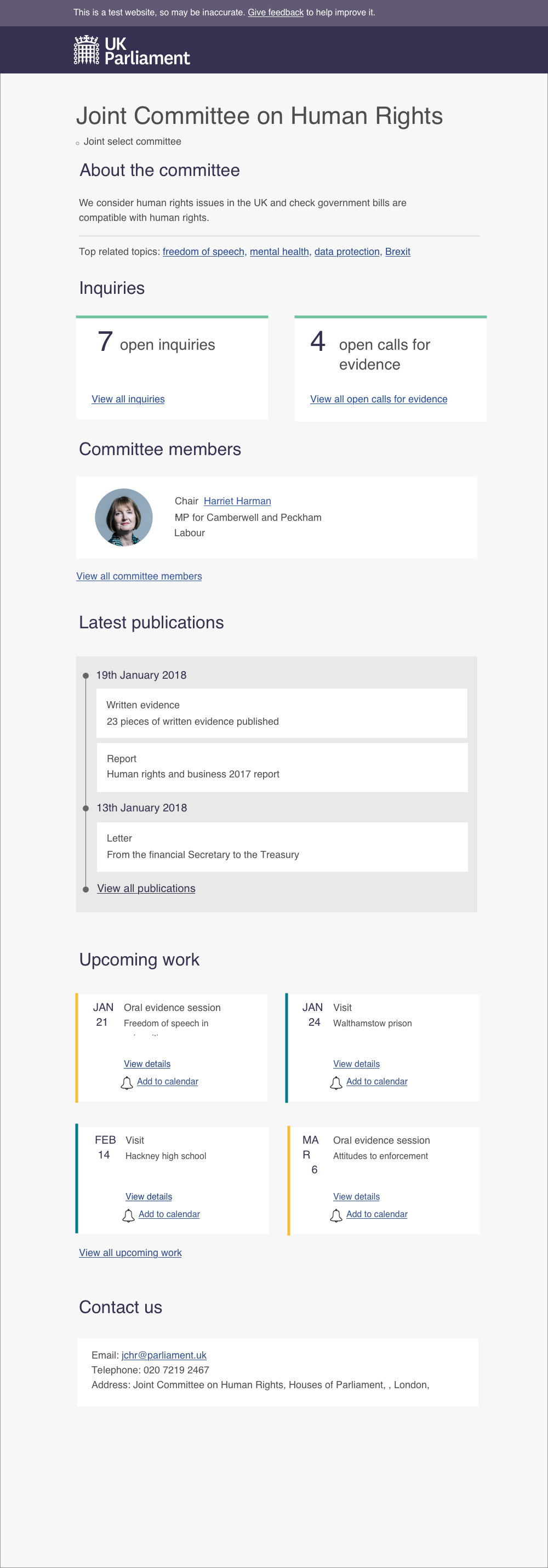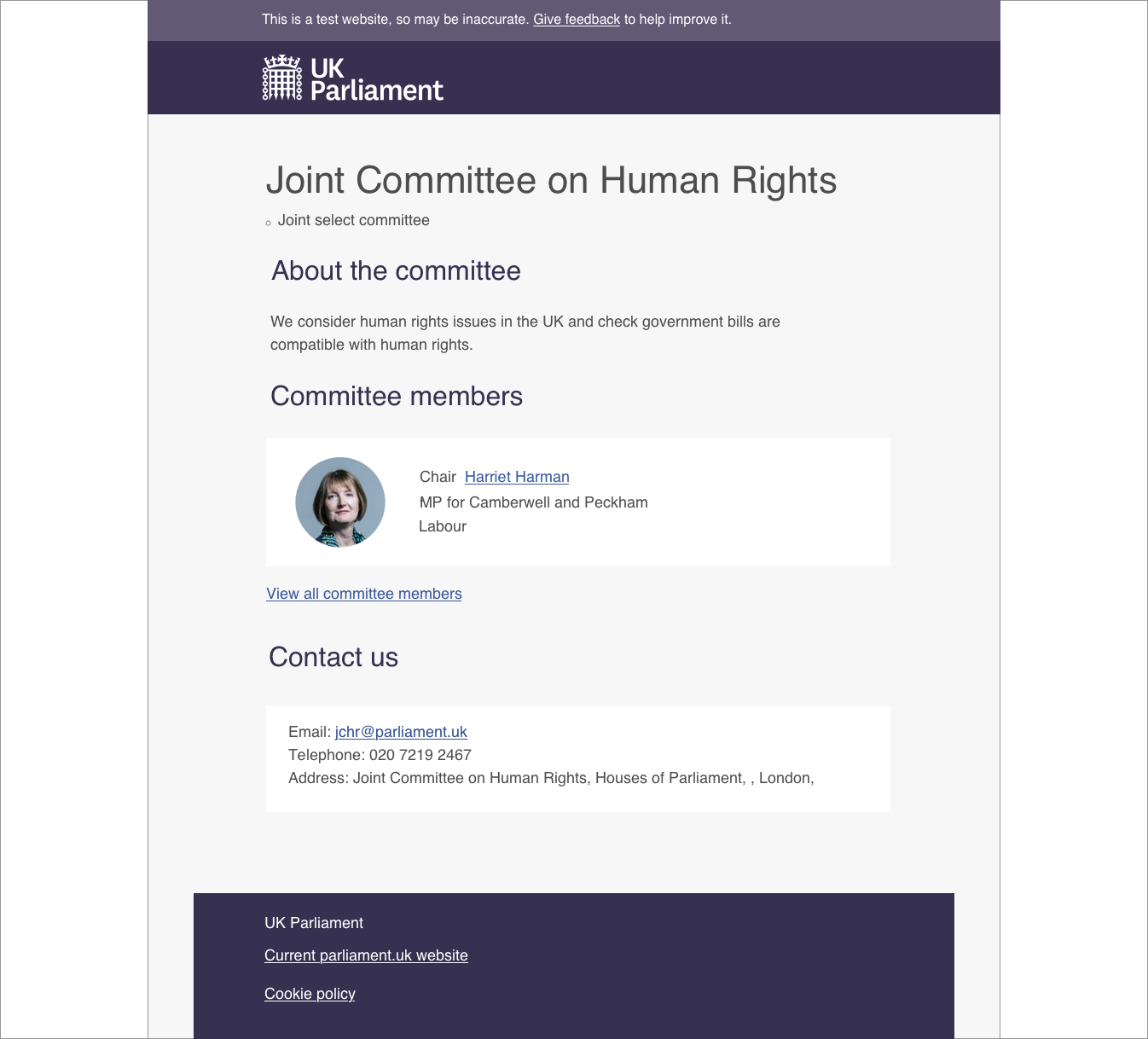UK Parliament Committees
Project overview
Committees are of key importance within Parliament, as they research and advise on proposals for new legislation across a breadth of important areas in consultation with experts. While committees are representatives of the general public, historically, it has been difficult to understand the intricacies of their day-to-day operations. As such, committees were a prime candidate to make the future of UK Parliament more accessible and understandable to the people it represents - the population of the UK.
Details of process
Due to the complexity of committees and the manner in which they work, an extensive discovery process was necessary to ensure that all intricacies of processes, a breakdown of stakeholders at each stage and all outputs that are produced were captured. This was done through a series of stakeholder interviews, attending committee meetings and user research with both known users of committee outputs and the general public. Once I had collated all of the relevant insights, I compiled them in a System Blueprint which enabled me to understand all of the component parts I would need to display on the front end.
I was then able to start the process of proposing solutions to solve the aim. I ran workshops with a multidisciplinary team to propose different solutions and then worked independently to consolidate the proposals into a design, ready to test with appropriate end users. I worked in collaboration with a User Researcher to develop a test plan and script, ensuring we would capture useful insights.
Once the research had been conducted, I worked closely with the User Researcher to analyse the findings and capture all of the feedback, so I could refine the final iteration of the design. In order to monitor how the final iteration of the design functioned, in alignment with the feedback from users, I worked closely with an Analyst to implement tagging, through Google Analytics, across the committee pages. We would regularly monitor behaviours using the outputs and propose iterations to improve the design where appropriate.
Outputs

